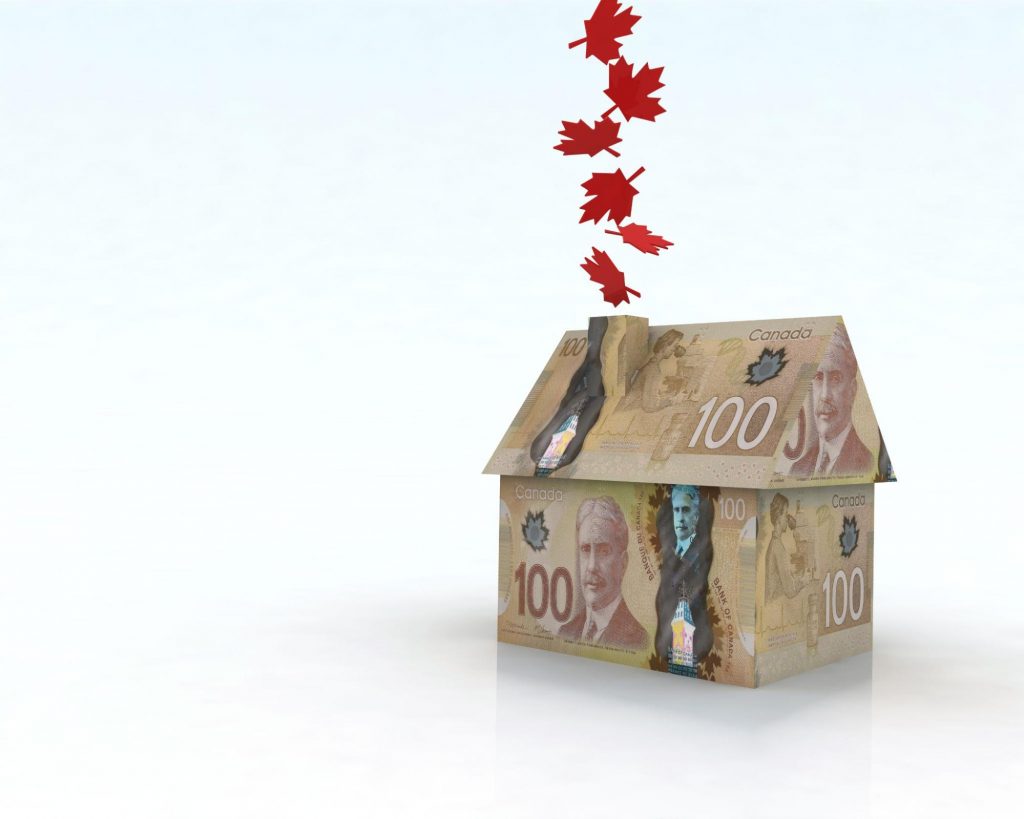By most measurements and comparisons, the United States has a better real estate market compared to Canada. That being said, it’s not a fair contest. The United States has far more usable land for real estate development, a much larger population (330 million to Canada’s 38 million), and more available capital in its homebuying population than Canada. Though the Canadian real estate market is very advantageous to home buyers who already have equity in their current homes, it can’t compete with the U.S. whose market is much more easily accessible to a larger cut of homebuyers. If you had to choose between the Canadian and U.S. markets, the U.S. is the best choice nine times out of ten.
The Advantages of the U.S. Real Estate Market.
U.S. homebuyers take home larger salaries than Canadians measured by median income, and on average U.S. homes are far cheaper than Canadian homes. Americans have more capital and lower home prices than Canadians on average. This is good for home buyers and home sellers. Homebuyers have the flexibility and a wider array of available houses, while home sellers have a larger pool of buyers to choose from, with more people able to buy homes in the U.S.
There are also far more major cities in the U.S. than in Canada, and they are more widely distributed geographically across the country. In Canada, the majority of major cities are clustered in southern Ontario and Quebec, increasing competition in an already limited area. If you want to live a suburban or urban life in Canada, you don’t have nearly as many places to choose from as you do in the U.S.
In addition, whereas you could find rural real estate in Texas and still be less than an hour away from every 1st world convenience, Canada isn’t built like that. Unless you’re located in the heart of Ontario real estate, or a similar place you might have to wait days for government services and/or fresh food supplies to the local grocer.
None of this is a knock on the Canadian real estate market, it’s just an acknowledgement of the real-world limitations that Canadian home buyers have to deal with.
The difference when it comes to buying a home between the U.S. and Canadian real estate markets is that the U.S. is better for homebuyers and Canada is better for homeowners. It’s a lot easier to get a home in the U.S. without much capital, whereas in Canada digging deep into your savings to buy a home is a matter of course. The average downpayment on a single-family home in the U.S. is about 6% of the loan value. In Canada, homebuyers pay upwards of 20% on average.
In some cases, Canadians choose to pay 20%, but most of the time they simply have to pay 20%. Canadians pay more for their homes in the short term, meaning that Canadians with equity (homeowners) have it easier than Canadians without equity (first-time homebuyers) because they have enough money on hand to get through that first downpayment. In the United States, a first-time home buyer will find it easier to get a house with less capital. That’s just not the case in Canada most of the time.
The Advantages of the Canadian Real Estate Market
If you bought a house or condo in almost any Canadian city before 2019, you’re probably very happy right now. Homeowners with equity in Canada are in a spectacular position, having seen their property values skyrocket. They could sell at almost any time and have enough equity to move almost anywhere they want and even buy into the luxury market.
The market in Canada is made for homeowners who can leverage their equity in their current home in order to get that newer, bigger, better-located home. Even if those newer homes are drastically increasing in value (and they are, with Canadian homes appreciating 20% in the last year alone, so are homeowners’ current homes. In short, the Canadian market is better than the U.S. market if you already have a house. If you’re just starting out on your path to homeownership, it’s going to take a lot longer to get what you want than it would in the United States.
The Sellers Market
With all that said, let’s assume you’ve got that dream house in Canada or that dream house in the U.S., and you want to sell. Will the Canadian or the American have an easier time making that sale and making the most money out of that deal? It all comes down to scarcity.
As of November 2021, the average monthly inventory of detached homes in Canada was 1.8, meaning available homes for sale are pretty scarce. In the U.S. that number is 6.5. If you’re selling a home in Canada, you (the owner) will have a much greater advantage than your counterparts in the U.S.
A Closer Look at Canada
When people argue in favour of the Canadian market -and there are plenty of strong arguments to make- they usually cite the stability and strength of Canadian real estate. For the last twenty years, Canadian real estate has shown remarkable growth and vitality, is hardly affected by the ‘08 crash that rocked the U.S. market and only seeing a small dip in 2016 when the requirements for mortgages were made more stringent.
Even that dip in 2016 quickly recovered within two years. Despite the initial shock of Covid, the Canadian market went into overdrive, and nowadays we’re seeing unprecedented appreciation rates that have many people scratching their heads wondering where the market can go from here.
We would caution against betting on Canada’s real estate market to continue into the stratosphere just as much as we would caution against assuming disaster looms around every corner and that a bubble burst is imminent. The truth is Canada’s real estate market is just like any other market, it’s not invincible, nor is it certain to fail.
Older Canadians will remember how the early ’90s were just as stressful as the late 2000s for Americans. Sure, things have been more or less stable ever since then, but this recent upsurge in prices is far from a sign of infinite strength, rather it is a sign of great expectations. Don’t be goaded into assuming the worst or betting on the best, just be aware that Canada’s real estate market is currently in flux.
The same can be said for the United States though to a lesser degree. The U.S. market and the Canadian market are mirroring each other, but the Canadian shifts are larger and more dramatic than in the U.S. Prices are higher in Canada, appreciation rates are higher, scarcity is higher, and down payments are higher. When Canada leaps, the U.S. merely hops. Both countries are experiencing big shake-ups in their housing markets in nearly all major cities, but those shake-ups are generally much larger and more noticeable in Canada than in the U.S.
This is mainly due to the smaller size and higher concentration of the Canadian market compared to the United States. Though their markets are drastically different sizes, they are both undergoing the same stresses. Thanks to its lower inventory, smaller population, and less available capital, the Canadian market reacts differently to big factors (a pandemic, lower interest rates, and a contraction of housing supply) than the U.S does. If you drop a boulder in a puddle, then drop the same boulder in a swimming pool, you’ll get the same size splash both times, but it’ll take a lot longer for the water to settle in the puddle than in the pool.
















